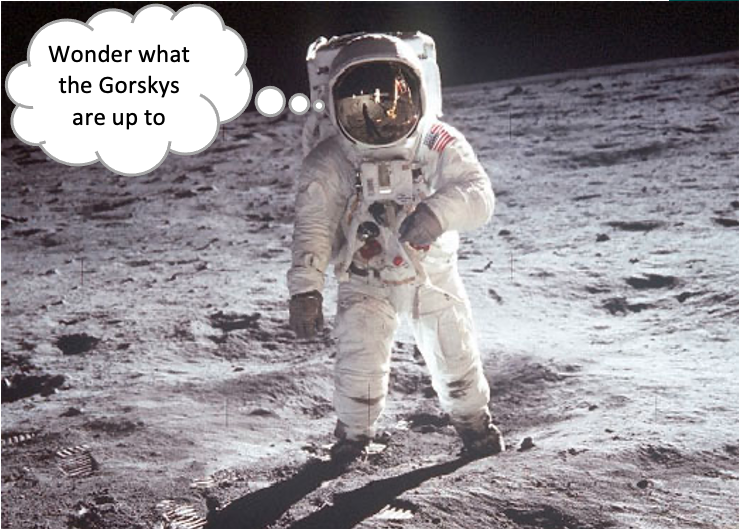Good luck, Mr. Gorsky
From the too good to be true,[1] but too good not to pass on dept. Also in the JC’s collection of amusing but apocryphal stories about space flight.[2]
|
After Neil Armstrong took his giant leap for mankind, there was the usual Capcom traffic between him, the other astronauts, and Mission Control before Armstrong paused, and said, “Good luck, Mr. Gorsky.”
Capcom assumed this to be a casual remark about a rival — perhaps a Soviet Cosmonaut having to make do without a space pen. But, no, there was no Gorsky in either the Russian or American space programs.
In the following months and years Armstrong was asked repeatedly what he meant, but he always respectfully declined. Then in 1995, in Tampa Bay, when a reporter brought up the question again, at long last Armstrong replied: Mr. and Mrs. Gorsky had both now passed on, so he felt he could answer.
Armstrong grew up in Wapakoneta, Ohio, next door to the Gorskys. As a boy, Neil used to play baseball with his brother Dean in their back yard. One day, Dean hit one over the fence. Neil hopped over the fence to retrieve the ball, which lay in a flower bed below the Gorskys’ bedroom window.
As he bent down to pick it up, Neil heard Mrs. Gorsky shout, “Blow job? Blow job you want? I’ll give you a blow job when that kid next door walks on the moon!”
See also
References
- ↑ A correspondent — and I get few enough of those, so it is a red-letter day —has asked me to clarify that “to good to be true” means, in fact, “false”. The JC is glad to be able to set the record straight.
- ↑ Again, and for the avoidance of doubt, and to benefit those readers — and Lord knows, we get few enough of them, so we try to accommodate them as best we can — from whom no amount of certainty can be too much, we would like to be clear that “apocryphal” means, more or less exactly, “false”. “Made up”. “A pork pie”. “A whopper”.
